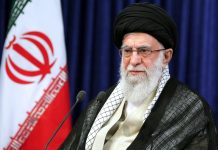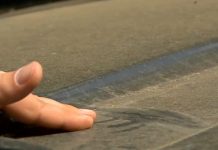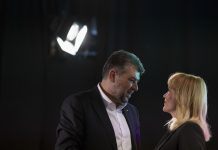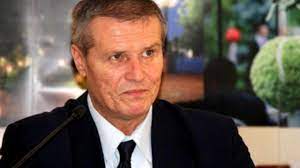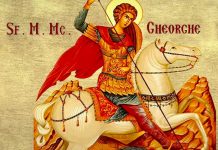More than three decades after communism ended, efforts to bring many of the perpetrators of the violence which killed 1,100 during the overthrow of Nicolae Ceausescu have failed.
The Communist hardline leader and his wife Elena were overthrown and tried and executed on December 25, 1989. Only a handful of people have stood trial for the bloodshed.
However, the recent election of Francisc Toba to Parliament who was an Army captain during the revolution has seen the publication of fresh and disturbing details of the unrest during East Europe’s bloodiest anti-communist revolt.
Mr Toba, 67, won a seat for the right-wing Alliance for the Union of Romanians in December 2020 elections. The party then expelled him after learning details of how he allegedly repressed the 1989 anti-communist revolt according to witness statements from a trial.
Cpt Toba acknowledges taking part in the revolution in his role in the military in the central city of Sibiu, but denies wrongdoing.
Ninety-nine people were killed and 200 were injured in the city and surrounding area during the revolution.
Francisc Toba faced charges of attempted murder and complicity to “inhuman treatment” but the case was dropped in 2010 as by law criminal trials must be ended within a time limit.
Newsweek România reported this week that Cpt Toba and Lt. Col. Aurel Dragomir and other military officials removed soldiers and Securitate officers who had been injured during fighting from their hospital beds against medics’ advice and taken to a sport’s hall where they were beaten.
Mr. Toba (he’s no longer a captain) told Radio Free Europe, he’d been called to secure the hospital which was under fire. „I didn’t take play a role repressing the revolution; I surrendered my weapons when I returned to the unit, and handed back exactly the same number of bullets I’d left with.”
However, in testimony published for the first time, witnesses told a different story. Prof. Dr. Zeno Popovici, then head of the surgery department at the Sibiu County Hospital, recalled: “The harmony at the hospital was rudely interrupted ….when army captain Francisc Tobă came to the hospital on a tank with several soldiers, probably called by a doctor, and probably instructed to spread rumors that the hospital was being shot at, which was merely a pretext to install himself with soldiers in the surgery department where they stayed undisturbed until the month of April.”
He said that he declared a state of necessity in the hospital and “introduced himself as the new government which would run the hospital. He took out his pistol and put it in the table and showed his black karate belt in a show of force.”
He set up a “committee” to visit patients on a daily basis, and decided which so-called terrorist should be discharged arrested or detained.
He even allegedly interfered in medical matters, such as taking out a tube from a patient’s chest, according to one witness.
One soldier said he and others were taken to a room where the clothes of dead patients were kept and told to get dressed in them and were taken outside.
“Cpt. Tobă tied us our hands behind our backs with bandages and all four of us were placed around the tank turret,” according to testimony from the trial.
“Cpt Tobă got into the tank, and put his hands on the rifle and said that if there is shooting, will be shot.”
The far-right Alliance for the Unity of Romanians urged lawmakers not to validate Francisc Toba this week and proposed an alternative candidate. Parliament rejected the appeal, saying there was no legal reason not to validate him.
The Institute for Investigating Communist Crimes, a government body tasked with investigating crimes of the communist era called his validation „an offense to the memory of thousands of victims of the December 1989” uprising.
It said there were was „multiple evidence” which showed his involvement in the bloody repression of the revolution in Sibiu, central Romania.
Francisc Toba entered politics in 1990 joining the National Salvation Front, widely viewed as the successor to the Communist Party.


